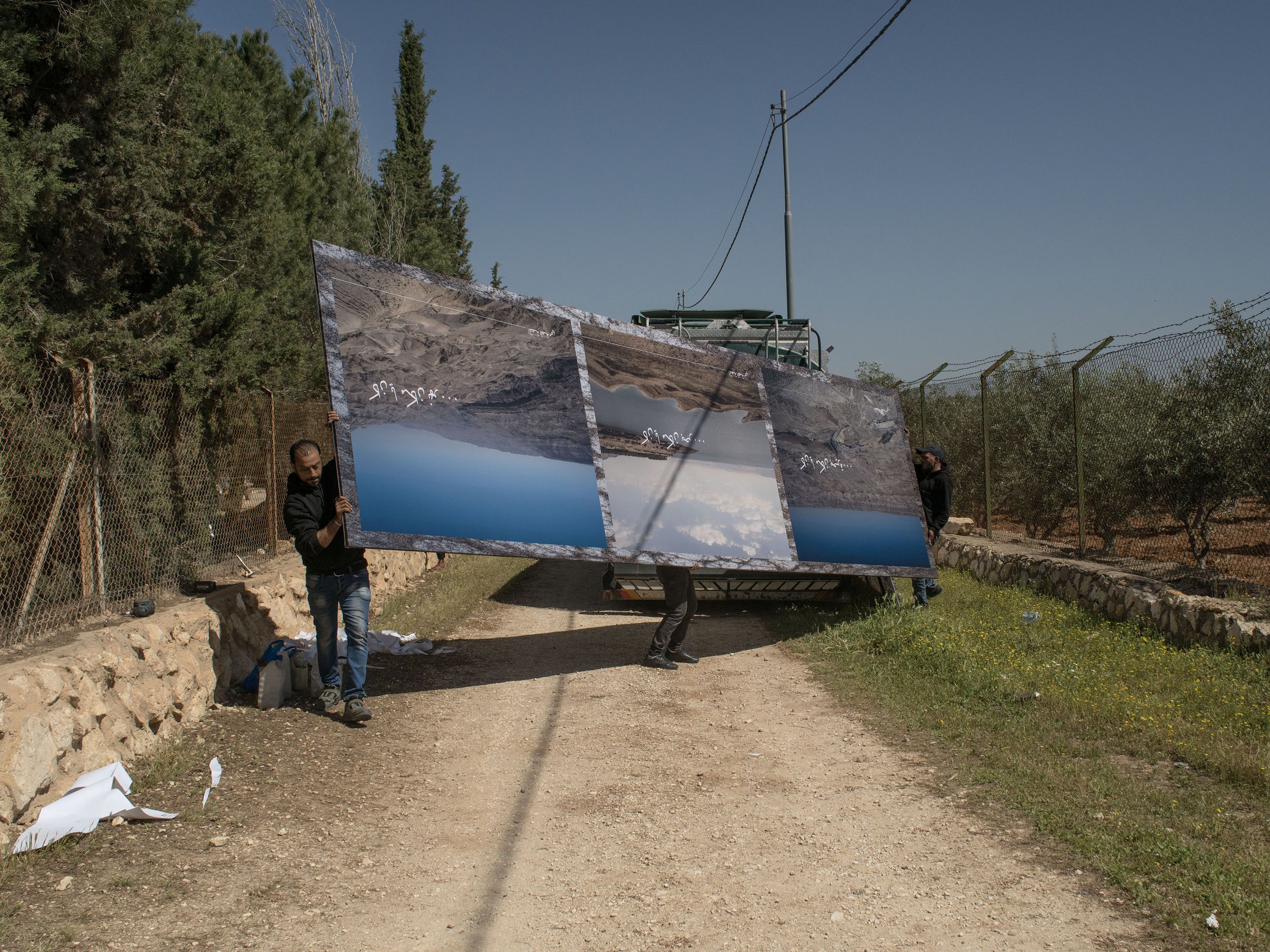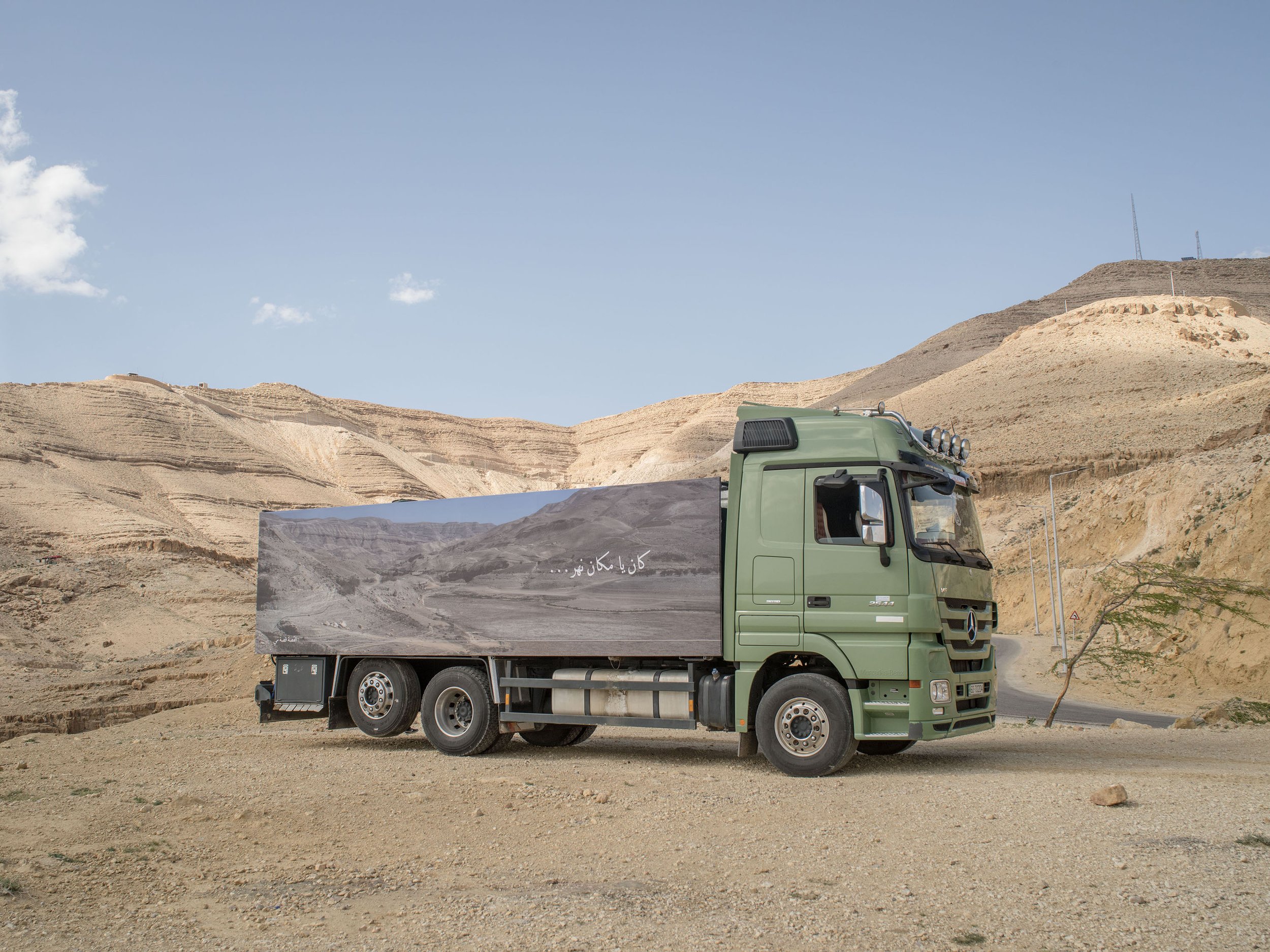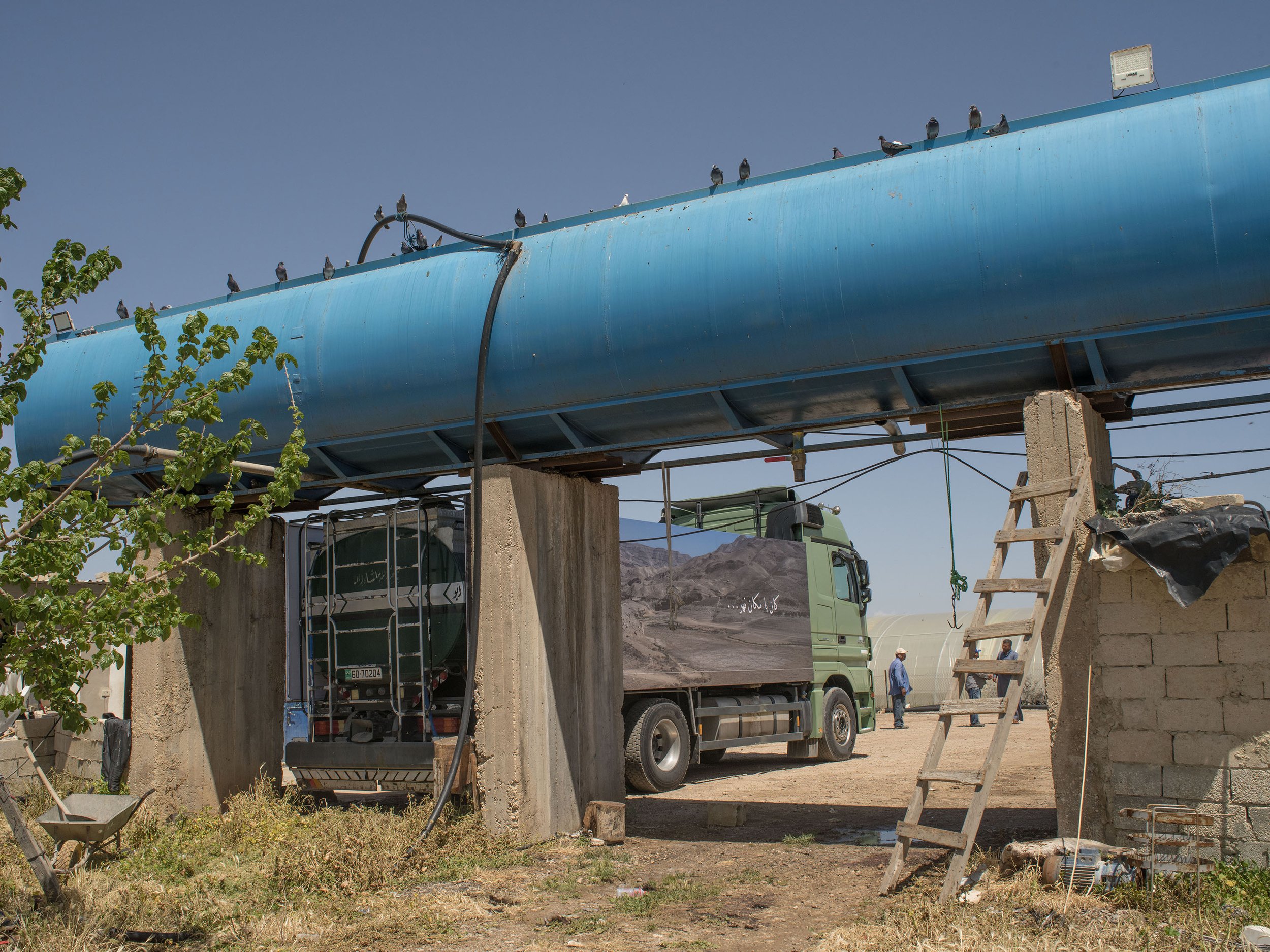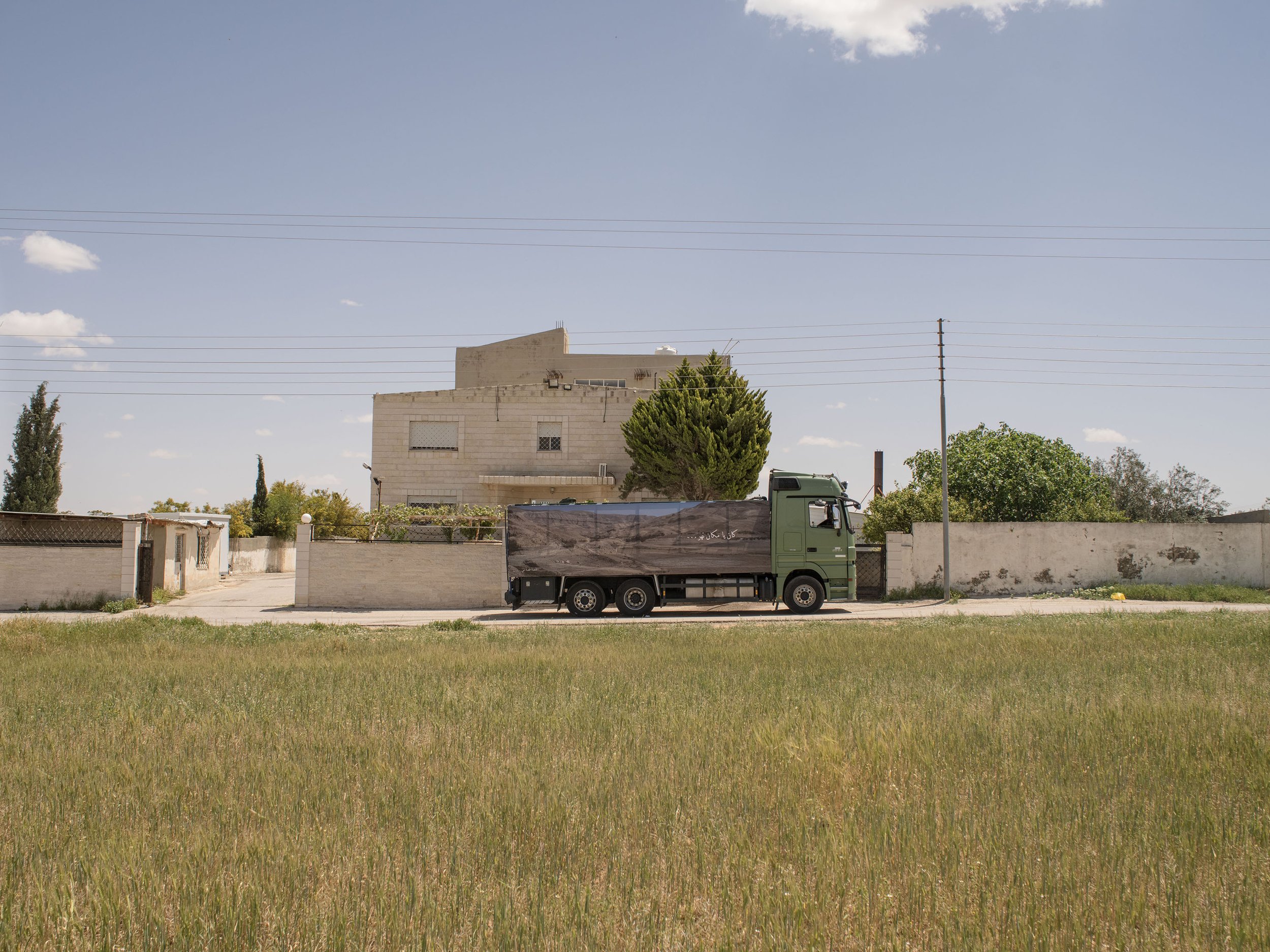All photos: Laura Boushank
Once Upon a Time… Water
Jordan is the second most water-scarce country in the world, and rising heat, coupled with a growing population, is making things much worse. This crisis provides a glimpse of issues looming in other parts of the globe.
Fine Acts worked with Jordan-based, award-winning Palestinian documentary photographer Laura Boushnak, on a public art action focusing on the impact of climate change on water across the country.
For this project, Laura first took images across Jordan in different locations to reflect the water crisis – like the Dead Sea, where the water level continues to decrease, and the dried-out Mujeb dam. All of the country’s major water sources are near the borders, and water must be transported inland, an energy-intensive and increasingly expensive process as fuel prices rise. Rainfall has decreased precipitously in recent decades and warmer temperatures mean that what rain does come evaporates rapidly. Longer and hotter summers have already shortened growing seasons for farmers.
As part of the commission, Laura also rented a water truck and printed the images on the vehicle, pairing them with texts: “Once upon a time… river”; “Once upon a time… sea”; “Once upon a time… lake”. Jordanians receive their water supply from the government anything from twice a week to once in two weeks. Some households resort to buying extra water tanks from private companies when they run dry. Many cannot afford it. The water truck carried the images across the country, creating a mobile show.
The UN estimates that water scarcity could displace 700 million people by 2030, and many see water scarcity as a potential source of future conflicts in the region.
“The photos I’m using in this project, begin with: Once upon a time, as all our stories start. The water here is the story turned into a cause. As the water tank roams across the city, it carries those images to visually tell the story of the climate change impact. It allows us to discuss each site’s history, stories, and transformation. But it also allows the audience to tell their stories and childhood memories related to those sites. The approach will enable us to involve more people in the story so that they can write their happy ending to it.”
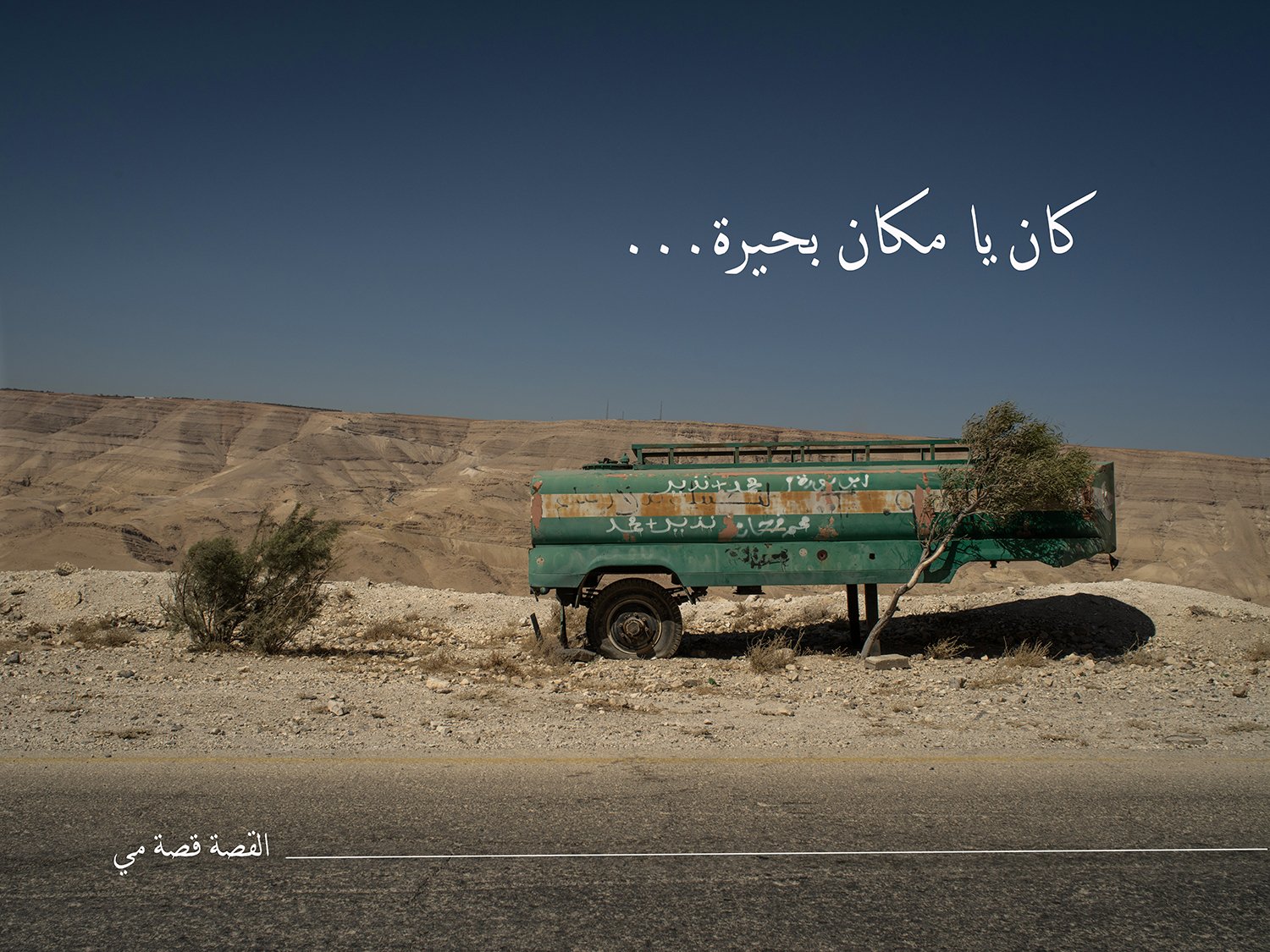
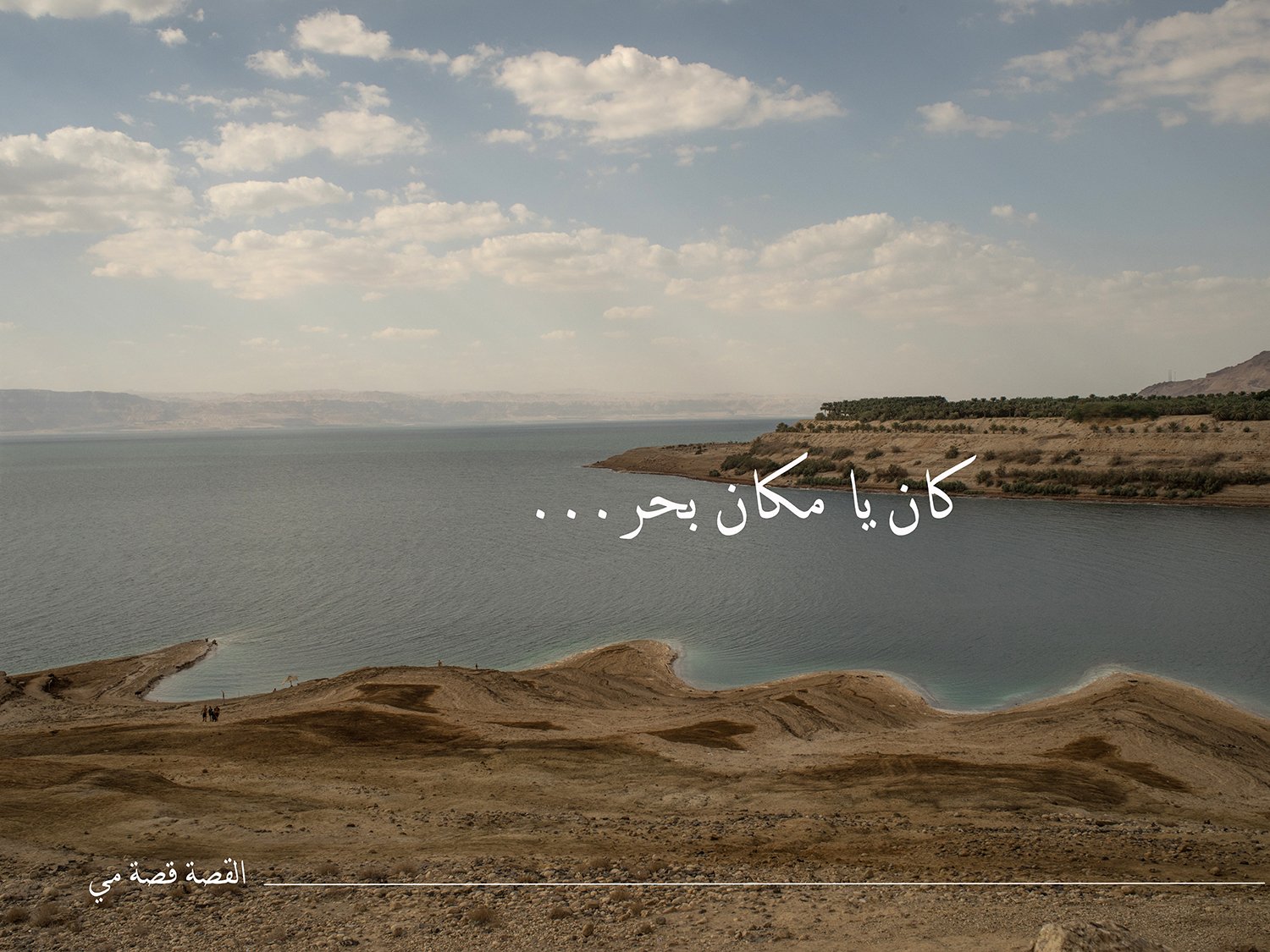
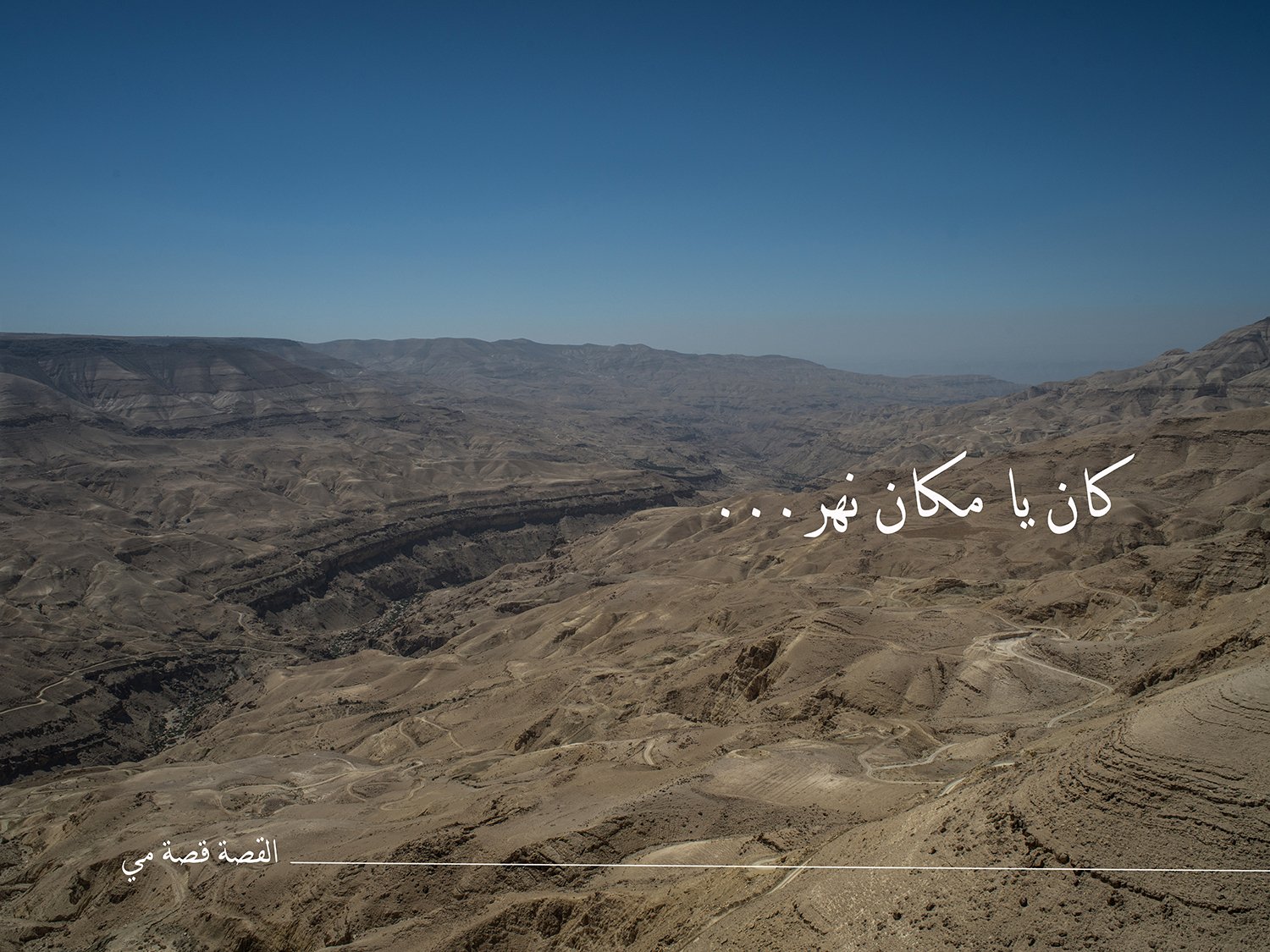
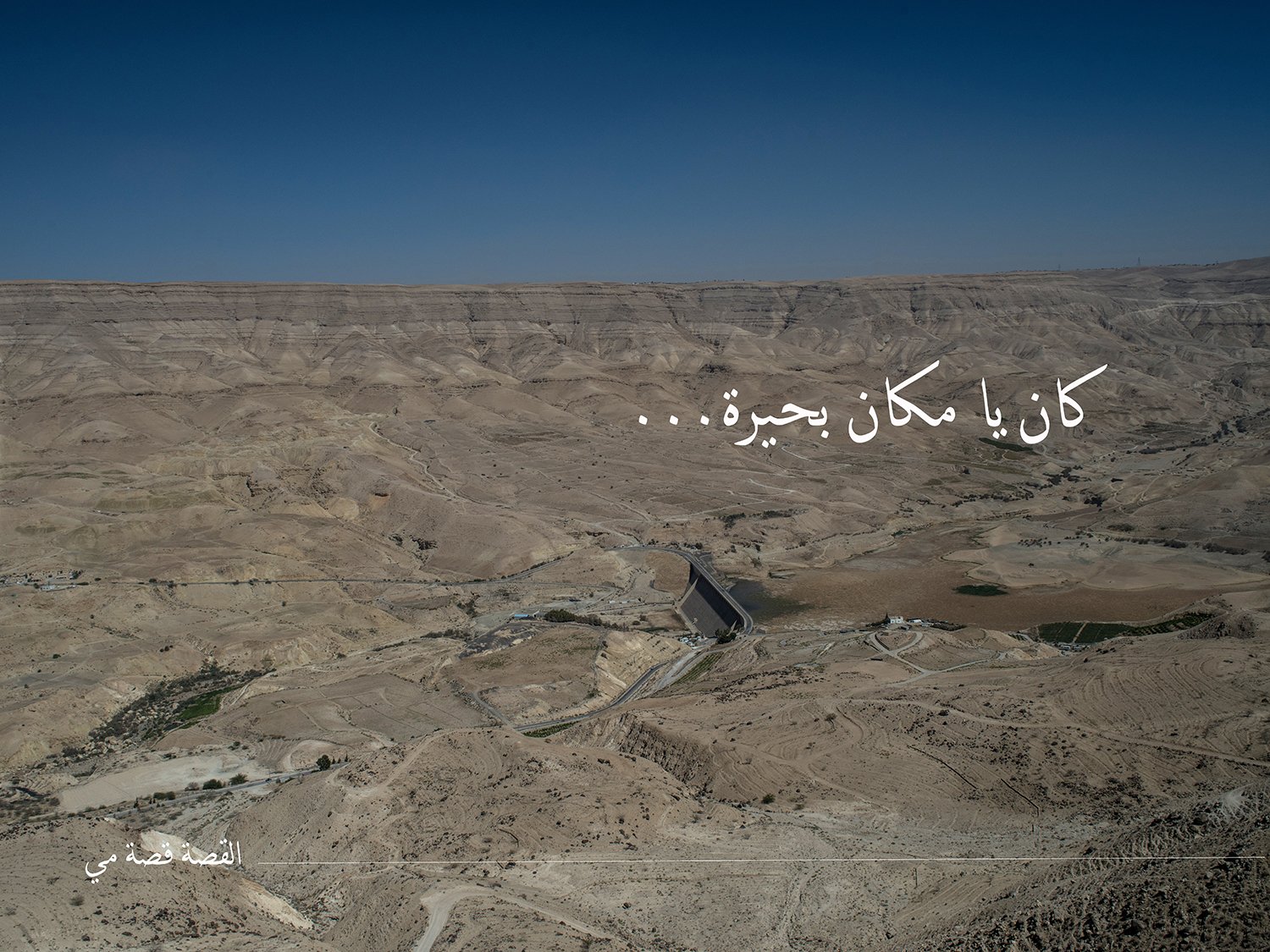
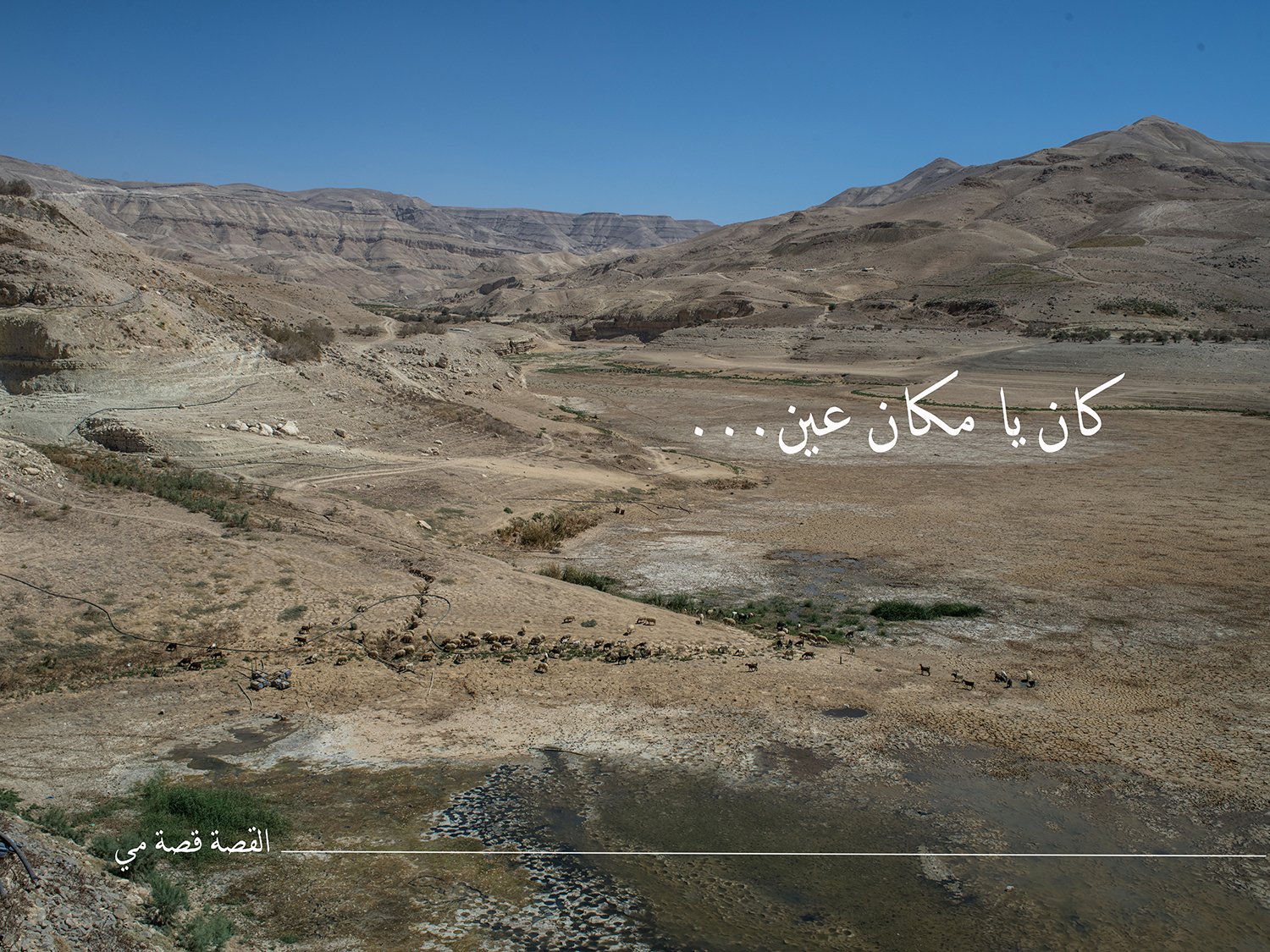
This installation is made replicable under an open license (CC BY-NC-SA 4.0) so that movements and collectives around the world can recreate the concept in their cities. Interested? Get in touch – hello [at] fineacts.co
THE ARTIST
Laura Boushnak is a Palestinian documentary photographer based in Amman, Jordan. Her work mainly focuses on the Arab world, looking at issues that she finds stemming from her own personal experience of gender, education, and the aftermath of war.
Boushnak began her career in 1999 as a photographer for the Associated Press in Lebanon. She then went on to work with the Agence France-Presse (AFP) at its Middle East hub in Cyprus and its headquarters in Paris.
As of 2008, she has been working as an independent photographer, commissioned for editorial assignments by the New York Times and other publications.
Boushnak’s main focus has been on her ongoing projects, “I Read I Write” and “Survivor.” The former revolves around Arab women’s education and literacy, while the latter highlights the aftermath of war and its impact on individuals long after the war has ended.
Boushnak is a TED fellow and has been invited to give talks in different parts of the world, including two separate TED talks in 2014 and 2016, where she shared the stories behind her “I Read I Write” and “Survivor” projects.


